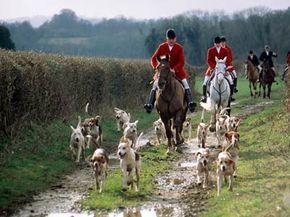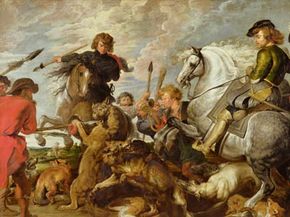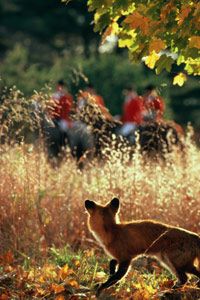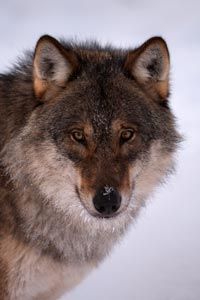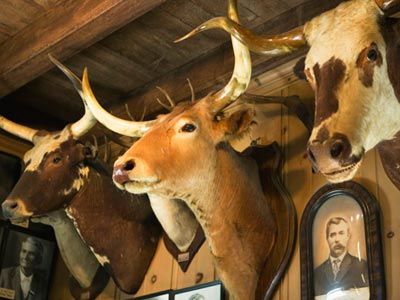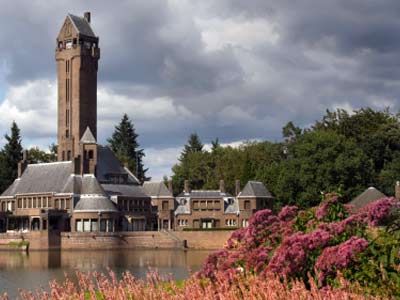Here's a riddle: What do Nazi war criminals, British elections, homosexuals and fox hunting have in common? Each is associated with the rarely used Parliament Act. The 1949 act was passed in Great Britain as a way for the House of Commons to bypass the House of Lords if that house was stalling on passing a bill into law. Since 1949, the Parliament Act has been invoked a mere four times: to give Britain the jurisdiction to bring Nazi war criminals to trial, to amend British elections and to change the age of consent for homosexuals [source: Alvarez]. The act was invoked for only the fourth time in 2004, to push through the passage of the Hunting Act.
Passing the Hunting Act was no easy matter; some variation of the bill had been kicked around for about a decade. The bill that passed and went into effect in 2005 made killing prey with dogs illegal. While stags and hares were also hunted with hounds in Great Britain, the animal at the center of this whole debate was the fox.
Advertisement
Fox hunting has a long history, with fans as diverse as ancient Assyrians and George Washington [source: Yazigi]. But the sport, with its traditional uniforms and strict ritual, is most associated with Great Britain. The sport relies on hounds, whose keen sense of smell leads the way for hunters on horseback. The pack of riders follows the hounds for hours over the countryside. In some countries, such as the United States, the hunt is over when the fox is driven underground by the dogs, but in British tradition, the hunt ends when the hounds kill their prey, the fox.
While some people will always see hunting and killing an animal as wrong, it's reasonable to wonder why fox hunting caused such hullabaloo. What's so bad about fox hunting that it caused hundreds of hours of debate in Parliament and massive public demonstrations during a period in which seemingly more important issues, such as the war in Iraq and a national election, were at stake? On the next page, we'll look at both sides of the argument about fox hunting, an argument that some people believe will determine the kind of country England will be in the future.
Advertisement
